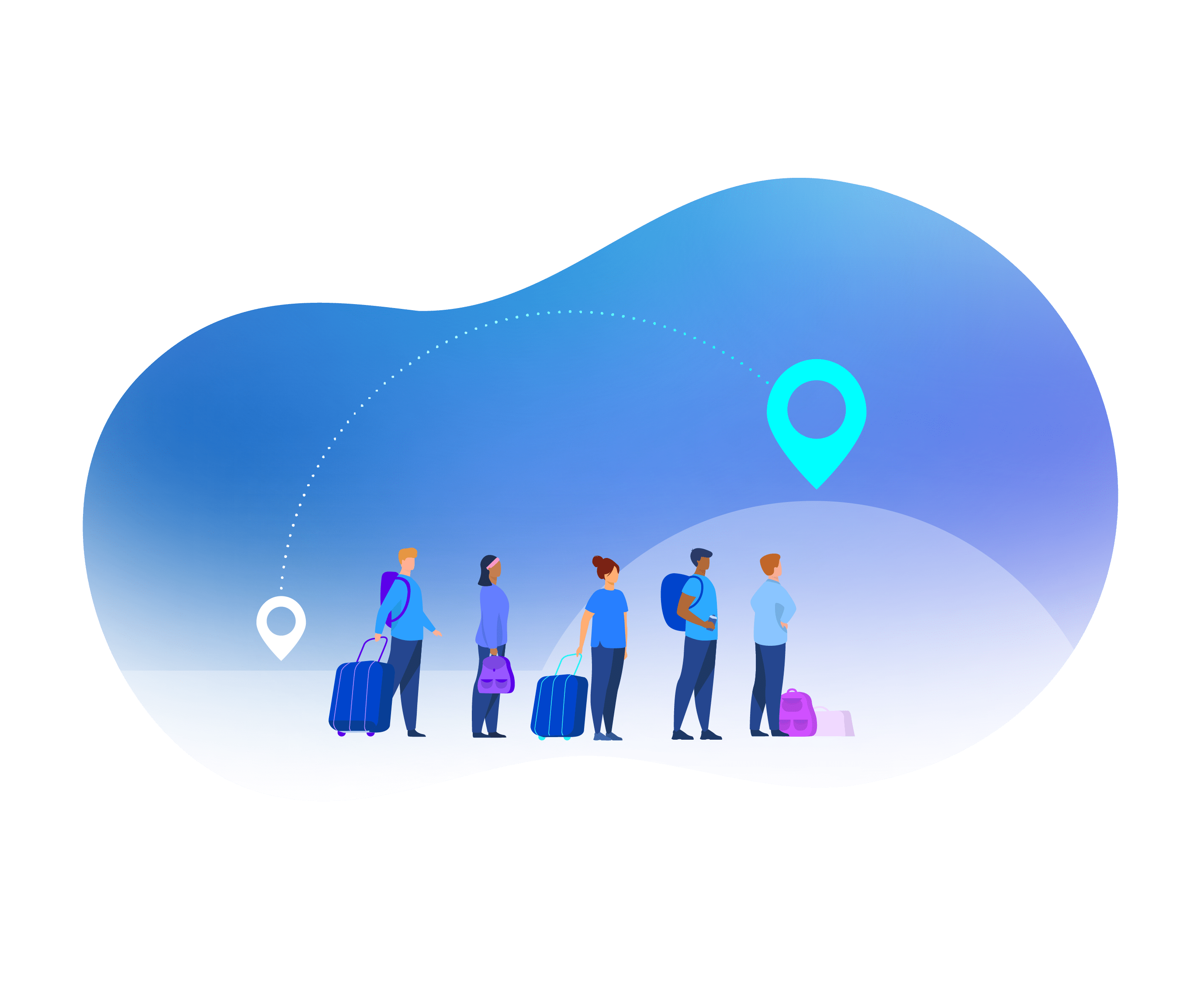Interview with Dr. Anna Donovan
“The art of the possible”: What does our transforming legal services ecosystem mean for our existing legal education system and regulatory frameworks?
Keywords: students, law, technology, blockchain, legal, innovation, education, legal education, community, transformation, AI


Dr. Anna Donovan is a law tech education pioneer and a lawyer admitted in both England & Wales and New York. Since 2014, her work lecturing at UCL and revolutionising legal education for the 21st century has earned her UCL Laws’ Excellence Award for Legal Teaching in 2015, 2017 and 2018, the UCL Provost’s Education Award in 2018 and the UCL Education Award in 2020. Anna is also firmly embedded at the bleeding edge of the legal tech ecosystem as a panel member of LawtechUK, a co-founder of UCL Art Futures, and a fellow at the UCL Centre for Blockchain Technologies. She has also recently published her new book, Reconceptualising Corporate Compliance, Responsibility, Freedom and the Law.
We caught up with Anna to talk about the contemporary disruption of the legal services ecosystem through technologies such as blockchain, AI and no-code automation tools, as well as the role that education and regulation should play during this exciting transformation.
Let’s end the debate; what is the difference between LawTech and LegalTech?

Great first question! Whilst a historic distinction, the two terms are now broadly synonymous, LawtechUK defines lawtech as the technology used in law and the delivery of legal and court services. It spans a spectrum of applications and possibilities, including handling and resolving disputes, contract creation, management and analysis, regulatory compliance, paperless trade, digital documents and e-signing, process automation, research and information, marketplaces and advice facilitation, matter and practice management, risk management and predictive intelligence.
I. Changing the mindset: Transforming the legal ecosystem through legal education

Do law schools adequately prepare students for legal practice and the increasing influence of technology? Should preparing students for the realities of tech-enabled legal practice be universities’ responsibility?
We should first acknowledge that law school in the UK is slightly different from other jurisdictions, such as the US, which have a greater (although by no means exclusive) practical focus. In the UK, those studying for a law degree do not always go on to practice law and a key responsibility of a law faculty is to help a student to develop a particular kind of thinking, rather than prepare them for practice per se.
In particular, a key concern of a legal educator should be to encourage rigorous critical thinking, analytical skills, and a curiosity about the big questions that law raises. Considering this, it is too strong to say it’s the sole responsibility of a law school to prepare students for applying technology in practice.
However, lawtech has a truly transformative potential. Not just for the delivery of legal services but how we think about law. It can, and is, transforming how we can meet society’s needs, be that for individuals or the business community. In this way, lawtech raises a considerable number of interesting, challenging and increasingly pressing questions that are absolutely right for academic inquiry. Questions that range from regulatory theory and design to corporate governance and the application of property rights and contract law. My personal opinion is that this raises an important opportunity for universities to introduce lawtech into their curriculums (as some are now starting to do) so that students, who are our lawyers, academics and policy makers of tomorrow, can think deeply about these questions.
The exciting opportunity for legal education is that there are numerous ways to introduce these debates on lawtech. At the moment, we tend to see discrete lawtech or innovation modules being offered, although an increasing number of innovative initiatives are continuing to emerge. However, there is great potential to integrate lawtech debates as part of core modules (such as exploring within a company law module the questions that decentralised autonomous organisations give rise to). In this way, we can encourage analysis which recognises that lawtech is not simply an adjunct to traditional legal disciplines but something that needs to be considered within them.
How have you managed to integrate technology and innovation in the curriculum at UCL?
At UCL, we have developed a number of initiatives to help our students learn more about lawtech, and to be curious about what broader questions of legal innovation look like. For example, we developed a “Law, Innovation and Public Policy” (LIPP) module as well as offering our students various extracurricular activities about lawtech, such as our Laws Perspectives course on legal innovation.
The title of “Law, Innovation and Public Policy” was very deliberate. Drawing on our earlier discussion, lawtech and innovation are not simply issues concerned with the automation of legal practice, but they raise deeply important policy questions. As such, we need to support our students to develop as critical thinkers who recognise the interconnectedness of these questions, as well as the opportunities and challenges that they present. We need people who are acutely aware of, and deeply passionate about, the role of law in society to support innovation and also to protect against some of the risks that might emerge. To help with this objective, the module was structured in a very specific way – to reflect the need for rigorous theoretical understanding as well as an appreciation of how these questions can arise in practice – to recognise where tensions and opportunities might emerge. Therefore, the module was split into two parts, the first addressing substantive issues of law and theory, with the second seeing the students develop their own projects, supported by mentors from practice.
We also have a number of extracurricular activities to help students that are interested in lawtech and innovation. This year, we launched a final year course as part of our “Laws Perspectives” programme, which explores innovation in legal services. Much like LIPP, it focuses on the innovation mindset, of developing a curiosity about innovation, rooted in the core objectives of the law and legal services. For example, if a goal of legal practice is protecting societal, business and individual interests how can we think differently to realise this objective in a more effective, accessible and efficient way? Achieving this goal often requires a different mindset to just saying “this is the way we’ve always structured contracts, how can we make the process a little bit cheaper or faster?” It requires a new way of looking at legal delivery and design, who we collaborate with and how we structure legal matters. It is an exciting transformation in the way we approach legal services, and it is important to help prepare our students for these opportunities.
At UCL, we are also a member of the global community Legal Hackers, which was initially born out of Brooklyn law school, to become a global movement. The initiative is comprised of both student and non-student members, bringing together people who share an open-source mentality of looking at what’s going on in the world and working out how we can contribute. Legal Hackers ask themselves how they can come together, share information, and move to action. It’s been great having the students join this global community. Open-source thinking is something that I believe is imperative to embed as a norm at the education stage, namely encouraging students to think in a community-based way, so that this is an approach that they can take forward into their careers. Aside from its immediate benefits, this mindset contributes significantly to the resilience our students need in a changing and dynamic legal practice environment.

What parts of the technology and innovation law curriculum at UCL tend to stick most with students?
Two things stand out. First, our students have been very quick to embrace the community-based and open mindset I was talking about earlier. They immediately recognise the intrinsic (and extrinsic) value of collaborating in an interdisciplinary and very genuine way, of true collaboration. I think they realise not only the potential that this brings for innovation but also for the quality of their own experience at work, in whatever field they decide to pursue.
Secondly, we have also seen how keen our students are to explore the art of the possible in legal services vocations. Many people with an interest in law thought they could only become a solicitor or a barrister, and that was it. Certainly, when I graduated, this was the fairly binary choice. We now have people building new firms, exploring (and creating) new markets, and developing their own path. That’s tremendously exciting to see and be a part of.
By thinking in these new ways, students discover that there is actually this wonderful open space for them to explore now. There are all of these different roles from legal engineer and legal designer to entrepreneur. There are so many opportunities to be supported through that journey and we help give students the confidence to explore that. This is one of the reasons we are so excited to be a partner at the Barclays Lawtech Eagle Lab, not only is it great to be involved in such an important initiative for the sector but it helps to show our students what is possible in this space.
Our students recognise that the UK is a global leader in the sector and if we are going to continue to create exciting jobs and do important work it is essential that we come together as a community. As trite as it is to say, for our studentsit’s not just thinking outside the box; it’s recognising that there doesn’t have to be one. That’s how transformative lawtech can be. If we adopt the right mindset then we can truly transform the delivery of legal services. This is what makes it such an exciting time for the sector.
What is LawWithoutWalls (LWOW), how are you involved with it and what makes it special?
For those who don’t know about it, LawWithoutWalls (LWOW) is an initiative developed by the University of Miami. It’s a programme designed to bring together students from the leading law and business schools around the world to think about the challenges and opportunities that exist at the intersection of law and technology.
I was actually a participant on the first year of the LWOW programme after I left practice. I’m qualified in both New York and England & Wales, so I have always had an interest in international legal practice. LWOW is a global programme focused on innovation, technology and making a difference so it was a perfect fit for me.

LWOW brings together groups of students supported by mentors (from academia, industry, and practice) to work for three months to develop a solution to a challenge or opportunity often arising at the intersection of law and practice. These projects span a wide range of issues from legal education and industry challenges to social enterprises. Every year it is incredible to see what the teams come up with in such a short period of time. The teams usually comprise of four students, supported by a similar number of mentors. At the start of the programme each team is given a broad project that they have to narrow down and develop a viable solution to. When the students present their projects at the end of the program, I never cease to be amazed at what they come up with. If you bring people together who have a common goal, an open mind and support them with the right network of people, the ideas that they generate are incredible.
One of the interesting aspects of LWOW is that sometimes there are teams that have similar or even the same topic. However, the way that each team approaches the problem and the solutions they create are completely different. Over the years, we have seen such a wide range of projects on LWOW. We’ve had projects looking at helping the immigration crisis, redesigning law schools and creating legal chatbots to support the delivery of in-house legal functions. It’s just such a unique opportunity for students to explore their curiosity and develop a broad range of skills. They learn how to work in a multidisciplinary team, how to work across jurisdictions and how to undertake thoughtful and rigorous research. It really is a valuable model for collaboration.
As you can imagine, it is a very competitive process to be accepted into LWOW at UCL. Those that are successful experience an incredible journey both in terms of their skills but also the contributions that they want to make to the sector. It’s a unique learning opportunity and a brilliant network of people. It’s been running for over ten years now, and it’s wonderful to see the community grow, with people returning year after year. Amongst the mentors, we often talk, collaborate and think about the ways that we can make a difference outside of LWOW.
II. Frontier Technologies
You’re internationally renowned as a leading authority on the intersection of blockchain and the law. What key emerging trends do you see in that intersection?
You will no doubt have seen that the UK has taken several critical steps in supporting the widespread adoption of DLTs. For example, the UKJT’s Legal Statement provided important certainty on the legal status of cryptoassets and smart contracts. The UKJT has also recently published its digital dispute resolution rules. In addition, the Law Commission is undertaking two important projects on smart contracts and digital assets.
This increased legal certainty has been complemented by efforts to provide greater technical certainty and capabilities. For example, the UK Legal Schema that was developed within the LawtechUK Sandbox, which provides a universal structured data format for digitalised contracts. Creating this uniformity of approach provides a critical foundation for widespread adoption and development. All that is to say that in the UK at the moment we are developing the legal and technical certainty necessary for greater investment, innovation and deployment in this field.
In terms of trends, we are seeing a number of interesting applications emerge. DeFi or ‘decentralised finance’ is obviously one key area, supported in part by the composability of the applications that are being developed. That is, the ability for DeFi products (or aspects of them) to interact with and build on each other. For this reason, an analogy is often drawn to lego bricks, reflecting the ability for each component to connect with another.

One area I am particularly interested in (hence my role as a co-founder of UCL Art Futures), is the way that DLTs can support the creative industries. The creative sector is at the heart of the UK’s competitive advantage and DLTs present significant opportunities for creative innovation as well as a mechanism for protection, curation and preservation (see for example DACS’ and Verisart’s launch of Bronzechain). There are a number of really interesting initiatives in this space already, with significant scope for further innovation to come. What I find particularly interesting is the possibility not only for shaping existing markets but also how (much like with smart phones) new markets might be created in ways that we don’t currently envisage. Needless to say, the legal services community has a critical role to play in this development, by supporting these new and emerging relationships in a way that protects fair and equal collaboration.
What has LawtechUK got planned for lawtech information and education in 2021?
We are looking forward to launching the LawtechUK Hub, which will provide the community with a central resource where they can explore, learn about and be inspired by lawtech activities. The Hub will provide access to information about LawtechUK’s work and how to get involved with it, together with an interactive ecosystem map sharing information about lawtech startups and interviews with community trailblazers. Importantly, the Hub will offer accessible short courses, which have been developed by expert practitioners, on the core technologies that are relevant to lawtech.
LawtechUK wants to work with a range of organisations towards a common purpose. Avvoka for example, does a considerable amount in the legal education space with the Avvoka Academy and its other initiatives (like your guide to document automation), and we very much believe that a rising tide lifts all ships. I love the approach that Avvoka takes by sharing knowledge to support understanding and adoption. It is this approach that helps to develop market and consumer confidence, which is critical in supporting new paths for further innovation.
Much like the law itself, education is an enabler of innovation and a core focus of our work is on how to support transformation through legal education. One of the things that has always been inspiring about the lawtech community is how everyone shares the vision of working together to help improve the delivery of legal services and I am excited to see what the next year brings!






